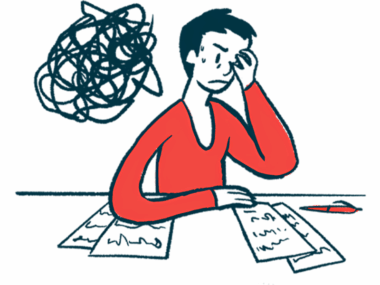Physical Activity, Coping Skills Can Help to Ease Anxiety With MS
Written by |

Getting more physical activity and having effective ways of coping with multiple sclerosis (MS) could help to ease anxiety in patients, a review study suggests.
“The findings of this review highlight links between anxiety in MS and a number of diverse factors, all of which are amenable to change,” its researchers wrote. “We argue that further research is needed to develop interventions with can target these modifiable factors in order to reduce the experience of anxiety in those with MS.”
The study, “Potentially modifiable associates of anxiety in people with multiple sclerosis: a systematic review,” was published in Disability and Rehabilitation.
Living with a chronic disease like MS can be anxiety-provoking, and it’s estimated that more than 1 in every 5 MS patients has clinically relevant anxiety — a rate that far exceeds the general population.
Even though anxiety is common with MS and substantially affects patients’ life quality, little is known about the factors that influence anxiety in these people. Understanding them could aid in developing ways that would better support patients in coping with anxiety.
A pair of scientists at Maynooth University in Ireland reviewed studies published between 2015 and 2021 that examined anxiety in people with MS. Of 3,116 in total, 39 studies met the inclusion criteria and were included in the analyses.
These studies encompassed 10,779 MS patients, most with the relapsing-remitting form of the disease (RRMS). With the exception of one study, a majority of the patients were female, with mean ages ranging from 24.2 to 58.3 years.
Combing through study results and looking for patterns across them, the researchers identified several factors that were consistently associated with anxiety.
Some had to do with lifestyle habits. In particular, a number of studies indicated more physically active patients reported less anxiety, and getting more physical exercise could ease reported anxiety. In some studies, for example, patients reported feeling less anxious after taking several weeks of calisthenics (exercises that rely solely on a person’s own body weight) or yoga classes.
“Our findings serve to emphasize the importance of physical activity for the treatment of anxiety comorbidities, further strengthening the case for developing targeted exercise programs for” people with MS, the researchers wrote.
Patients with more social support — those with strong connections to family, and particularly patients who regularly spent time with friends — also tended to report lesser anxiety.
“Interestingly, in those studies that investigated different sources of social support (i.e., support from friends, family, and/or significant others), social support from friends was consistently linked to better anxiety outcomes, while evidence linking anxiety and support from family and significant others was less conclusive,” the researchers wrote.
Several psychological factors also were noted as tied to anxiety; for instance, patients with high emotional resilience (a tendency to quickly recover from stress or changes) were generally less anxious. Those with higher self-efficacy (a sense of their own capabilities) also were less anxious overall.
Disease acceptance also affected anxiety’s intensity. “Results unanimously suggest that higher levels of acceptance, as well as related concepts such as disability identity were associated with lower levels of anxiety,” the researchers wrote.
Likewise, a person’s coping strategies had influence. Patients who used strategies like trying to manage stress, adjusting expectations, and tenaciously but flexibly pursuing goals tended to have less anxiety. By contrast, other strategies such as maladaptive emotional regulation — in essence, getting upset with yourself for the emotions you feel — was associated with more anxiety.
These findings “suggest that a range of lifestyle, social, and psychological factors may play a role in the experience of anxiety” among patients, the researchers wrote, and “offer some insight into how psychological wellbeing might be improved in this group, paving the way for targeted interventions in the area.”
As “clear links” were seen between “coping strategies and anxiety outcomes, it may be pertinent for MS service providers to assess the current coping strategies that PwMS [people with MS] depend on, as well as considering how best to foster more adaptive coping strategies associated with improved anxiety outcomes,” they added.


